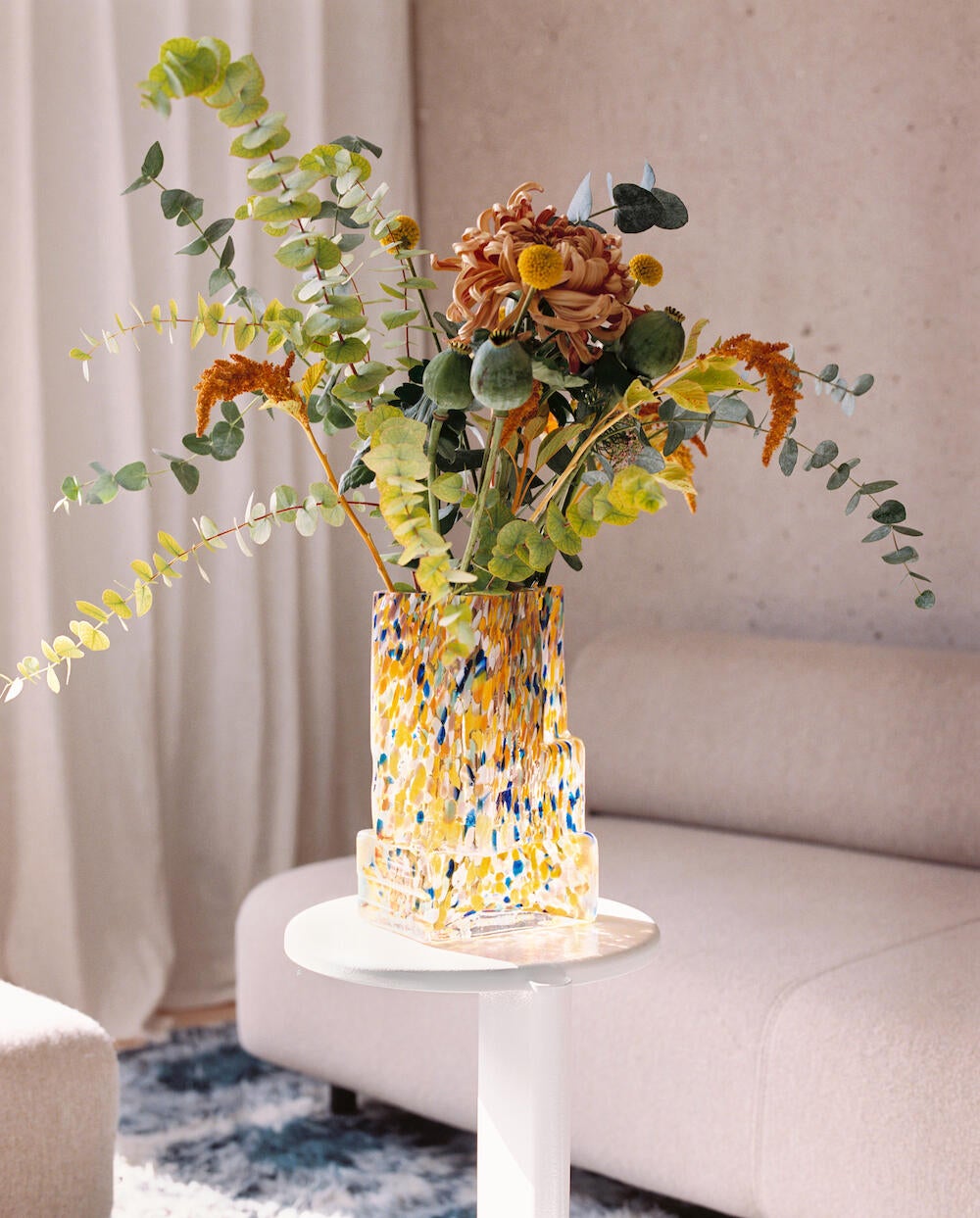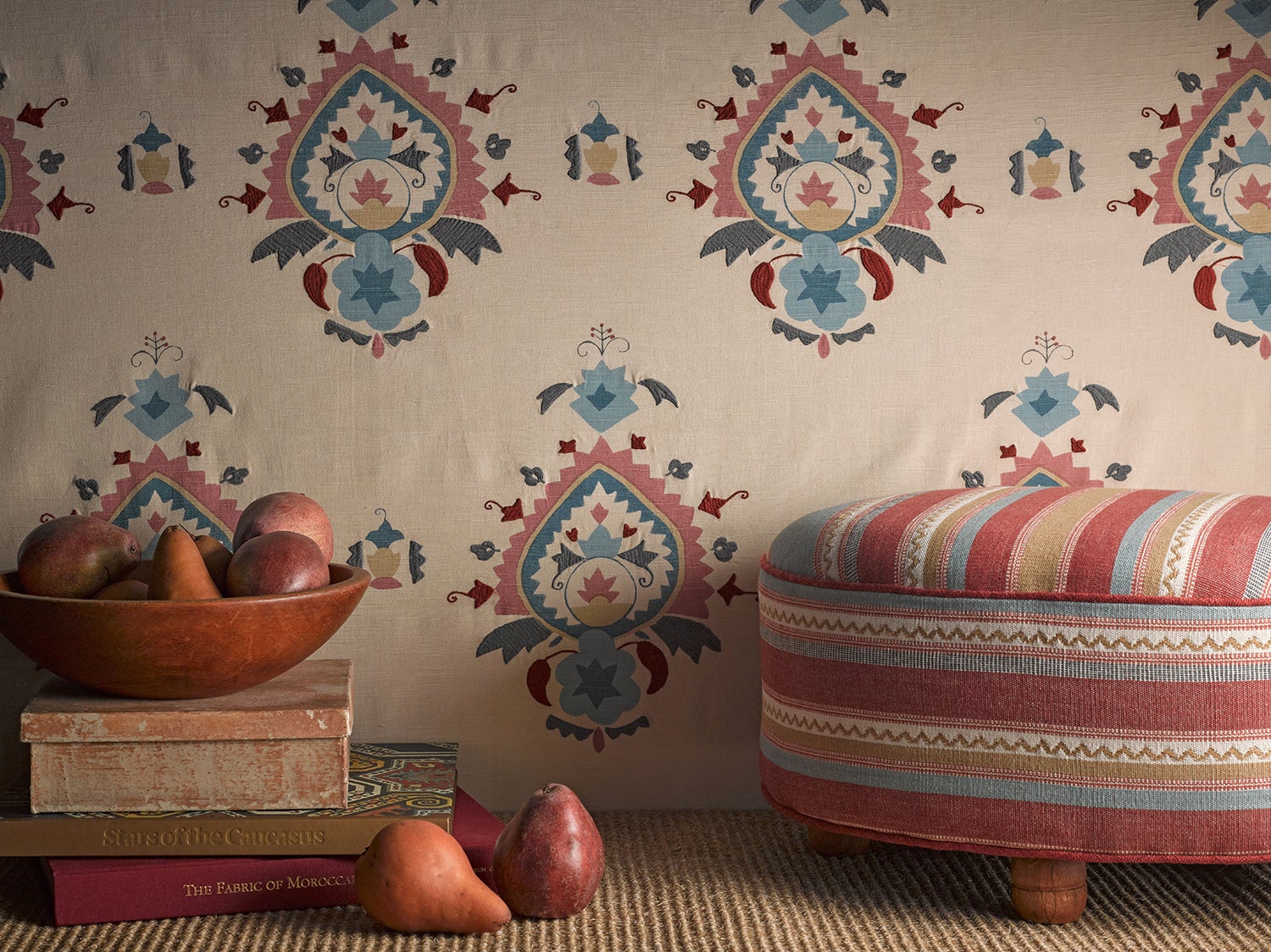This week in design, visitors of The Mart in Chicago may notice a new feature on the building’s facade—a large-scale projection depicting a Ukrainian folktale, created by a Kyiv-based team as a nod to the country’s large diaspora community in the Windy City. Stay in the know with our weekly roundup of headlines, launches, events, recommended reading and more.
Business News
Kitchen and bath industry professionals are predicting the current economic slowdown will continue, according to the National Kitchen & Bath Association’s Market Index for the third quarter of 2022. Results included the lowest overall market index—63.2 out of a possible 100—since the same period in 2020 and the lowest future conditions rating since the first quarter of 2020. The report also found that fears of a recession became the top concern among the 598 industry professionals surveyed this quarter, with 24 percent selecting a potential economic downturn as their biggest anxiety. Additionally, respondents said that project cancellations and postponements are at their highest rates this year so far, according to 65 percent of design firms surveyed.
Airbnb co-founder Joe Gebbia has launched a startup selling small one-bedroom backyard units to homeowners, The Wall Street Journal reports. The new venture, called Samara, will initially offer the accessory dwelling units, or ADUs, in California, where an ongoing housing shortage has led to eased restrictions around the tiny properties, though Gebbia said he plans to eventually expand into more locations. The factory-made modular units will range from $299,000 for 430-square-foot studios to $339,000 for 550-square-foot one-bedroom units, with Samara handling applications for building permits and installation.
U.K.–based online furniture and homewares retailer Made fell into insolvency earlier this month after failing to secure a buyer through a formal sales process, BBC News reports, and has since been purchased by British fashion retailer Next in a $3.8 million deal. The events have resulted in roughly 400 job losses for the company, and have left roughly 12,000 orders outstanding.
TikTok has rolled out tests in the U.S. market for a new e-commerce feature, Semafor reports, which allows users to make purchases directly through the app. The TikTok Shop feature was previously only available in the U.K. and seven countries in Southeast Asia, though the company has now started inviting select businesses to participate in the program. The move aligns with TikTok’s broader goal of introducing the livestream shopping industry—worth $400 billion in China—to the U.S. market, where the format hasn’t yet reached a similar popularity.
Sherwin-Williams has acquired the German holding company Specialized Industrial Coatings, which owns coating companies Oskar Nolte and Klumpp, Designers Today reports. The terms of the deal were not disclosed. The company’s portfolio contains a variety of coating products for the furniture and flooring industry, with operations that extend to Europe, Asia and South America, overseeing roughly 220 employees and annual sales of more than $94 million. For Sherwin-Williams, the purchase comes just a few weeks after its acquisition of ICA, an Italian manufacturer and distributor of wood coatings, and continues the paint giant’s strong recent performance, having amassed a record $6.05 billion in sales in the third quarter.
Private equity firm Blackford Capital has acquired direct-to-consumer hearth and patio company Starfire Direct, Casual News Now reports. The purchase marks the first in Blackford’s plans to acquire several players in the home outdoor space, with the goal of creating an omni-channel platform hosting a variety of patio and backyard products.
In other acquisition news, private equity firm Sycamore Partners has signed an agreement to acquire the Canadian retail division of Lowes in a $400 million deal, Home Textiles Today reports. Through the purchase, Sycamore will take over the company’s 450-store operation as well as its e-commerce home furnishings and furniture marketplace; Rona, a home renovation and construction retailer that sells furnishings online; Réno-Dépôt, a home supply chain that sells decorative home furnishings online; and Dick’s Lumber, a building supplies chain. Though subject to closing conditions and regulatory approvals, the transaction is expected to close in early 2023.
The U.S. Consumer Product Safety Commission has proposed two major safety changes to home products in recent weeks, applying new standards to both operating cords on custom window coverings and clothing storage furniture. The measure surrounding corded window coverings applies to custom shades, blinds, curtains, drapery and similar products, and was created to address the risk of strangulation and injuries to children eight years old and younger—on average, about nine children under age five die each year in such incidents, according to CPSC’s latest data. The new standards impose stricter performance requirements for corded products, while also urging consumers to choose cordless window coverings as the safest option for children.
Meanwhile, the new standards around clothing storage units apply to products including freestanding chests, dressers, armoires and bureaus, which also pose a risk to young children due to tip-over incidents. The CPSC will now require the units to exceed minimum stability requirements and undergo new test methods for products with interlocks, which are designed to improve stability by preventing all drawers from being opened at once. Both new standards will take effect 180 days after they are published in the Federal Register.

Launches and Collaborations
Swedish design brand Hem has launched its debut collection of tableware and accessories, tapping a variety of collaborators to bring the assortment to life. The cohort includes London-based Supergroup—a joint venture between artist and ceramicist John Booth and ceramic artist Ian McIntyre—London locals who have created a rainbow-hued tableware collection; Guadalajara-based designer Fabien Cappello, who reinterpreted salt and pepper grinders in the Mexican craft tradition; and Washington, D.C.–based designer Jonah Takagi, who created a brutalist vase available in several bright colorways.
Showroom Representation
New York–based artisanal textile brand Somerselle has welcomed two new local partners and their products to its multiline digital showroom portfolio. The additions include Kathryn Hunt Studio, which offers textiles created through an artistic process incorporating elements of watercolor and pastel; and York Street Textiles, which offers a boutique collection of residential fabrics produced in partnership with print, embroidery and weaving mills worldwide, with many designs hand-drawn and painted by founder Robin Klingensmith.
Recommended Reading
Since taking over the helm of RH more than two decades ago, CEO Gary Friedman has ushered the company through a series of changes carefully chosen to elevate the Corte Madera, California–based furnishings retailer into a brand synonymous with luxury design. As Charlotte Hogarth-Jones writes for Boat International, the latest iteration of those grand plans has manifested in the company’s debut superyacht, which underwent interior and exterior renovations and will now be available to charter starting this season.
It’s no secret that trends are cyclical, with every seemingly long-forgotten aesthetic moment bound to return again—which might explain why now, three centuries after its original incarnation, the whimsical style of rococo art and architecture appears to be making a comeback. As Danielle Thom writes for ArtReview, an escape into the fanciful, ornate style—identifiable by natural motifs, lightness and asymmetric curves—may provide a respite from painful global conditions such as economic woes and an ongoing pandemic.
Homepage image: Fabric by York Street Textiles, which is now carried by the Somerselle showroom | Courtesy of Somerselle





























